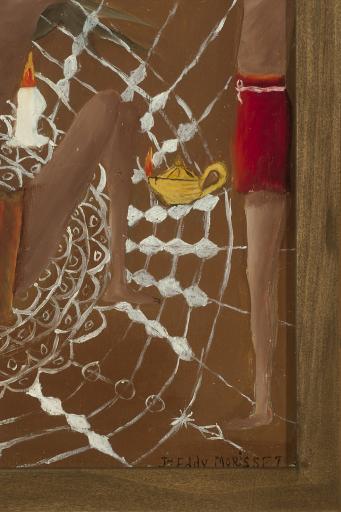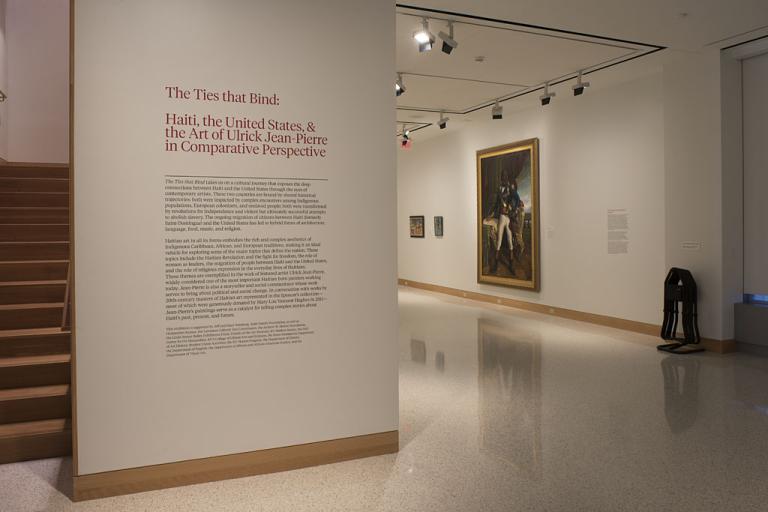Vodou Ceremony, Jean Edy Morisset
Artwork Overview
Jean Edy Morisset, artist
Vodou Ceremony,
circa 1970
Where object was made: Haiti
Material/technique: paint; hardboard
Dimensions:
Canvas/Support (Height x Width x Depth): 60 x 41 cm
Canvas/Support (Height x Width x Depth): 23 5/8 x 16 1/8 in
Frame Dimensions (Height x Width x Depth): 25 1/4 x 17 1/2 x 1 in
Canvas/Support (Height x Width x Depth): 60 x 41 cm
Canvas/Support (Height x Width x Depth): 23 5/8 x 16 1/8 in
Frame Dimensions (Height x Width x Depth): 25 1/4 x 17 1/2 x 1 in
Credit line: Mary Lou Vansant Hughes Collection
Accession number: 2011.0307
Not on display
If you wish to reproduce this image, please submit an image request






